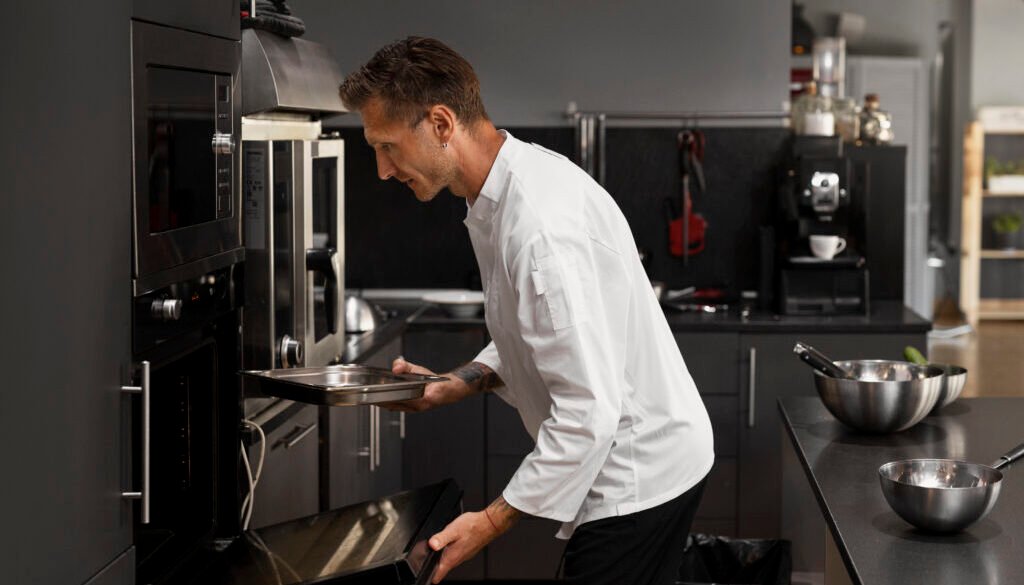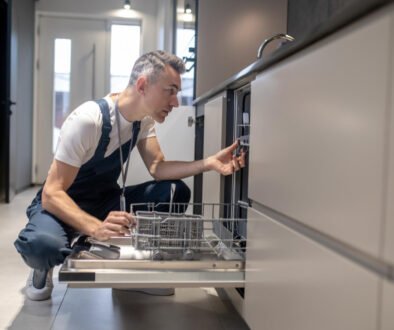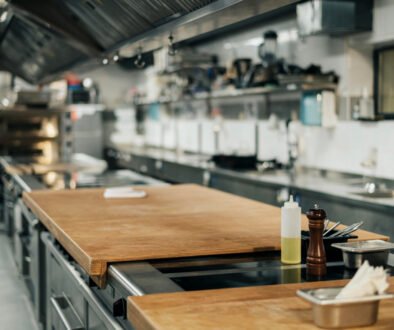Nurturing Your Kitchen Equipment: Easy Ways to Take Care of Your Cooking Tools
The kitchen is the heart of both restaurants and homes, where delicious meals are crafted, and fond memories are made. Similar to any other relationship, the one we have with maintaining kitchen equipment requires attention and care. By adopting simple and effective maintenance practices, we can ensure that our cooking tools remain in top-notch condition, ready to assist us in creating culinary delights. In this blog, we’ll explore easy ways to nurture your kitchen equipment, promoting longevity and efficiency.

8 Easy Tips for Maintaining Kitchen Equipment
Regular Cleaning:
The foundation of good kitchen equipment care is regular cleaning. Make it a habit to clean your tools after each use. From pots and pans to knives and cutting boards, a quick wash with warm, soapy water helps prevent the buildup of grime and extends the life of your equipment.
Proper Storage:
Providing a cozy and organized home for your kitchen tools is crucial for their well-being. Store knives in a knife block or on a magnetic strip to protect the blades and keep them sharp. Pots and pans should be stacked with care to avoid scratches, and delicate items like glassware should have their designated spaces to prevent chipping.
Mindful Use of Cooking Surfaces:
Be mindful of the surfaces you use your kitchen tools on. Avoid cutting directly on countertops to protect your knives and invest in quality cutting boards. When cooking, use appropriate utensils to prevent scratches on non-stick surfaces, so frequently maintaining kitchen equipment promotes the longevity of both your tools and cookware.
Oil and Season Cast Iron Cookware:
If you have cast iron cookware, such as skillets or pans, show them some love by regularly oiling and seasoning them. This not only prevents rust but also enhances their non-stick properties. A well-seasoned cast iron pan becomes a reliable companion in the kitchen.
Sharpen Blades Regularly:
A sharp knife is not only safer to use but also more efficient. Invest in a good quality knife sharpener or hone and sharpen your blades regularly. This simple practice of regularly maintaining kitchen equipment ensures precision in your cuts and reduces the risk of accidents caused by dull blades.
Check and Tighten Loose Handles:
Over time, the handles of pots and pans can become loose. Regularly check and tighten them to prevent accidents and maintain the structural integrity of your cookware. A tight grip ensures safe and enjoyable cooking sessions.
Handle Electrical Appliances with Care:
For electrical appliances like blenders, food processors, and coffee makers, follow the manufacturer’s instructions for cleaning and maintenance. Regularly check cords for any signs of wear and tear, and handle these appliances with care to prevent damage.
Inspect for Wear and Tear:
Take the time to inspect your kitchen tools for any signs of wear and tear. Whether it’s a loose screw on a handle or a chip in a baking dish, addressing these issues promptly can prevent further damage and extend the life of your equipment.
In conclusion, nurturing and maintaining kitchen equipment doesn’t have to be a complex task. By incorporating these easy and practical tips into your routine, you can ensure that your cooking tools remain reliable and ready to assist you in creating delightful meals for years to come. A little care goes a long way in fostering a harmonious relationship between you and your kitchen companions.


